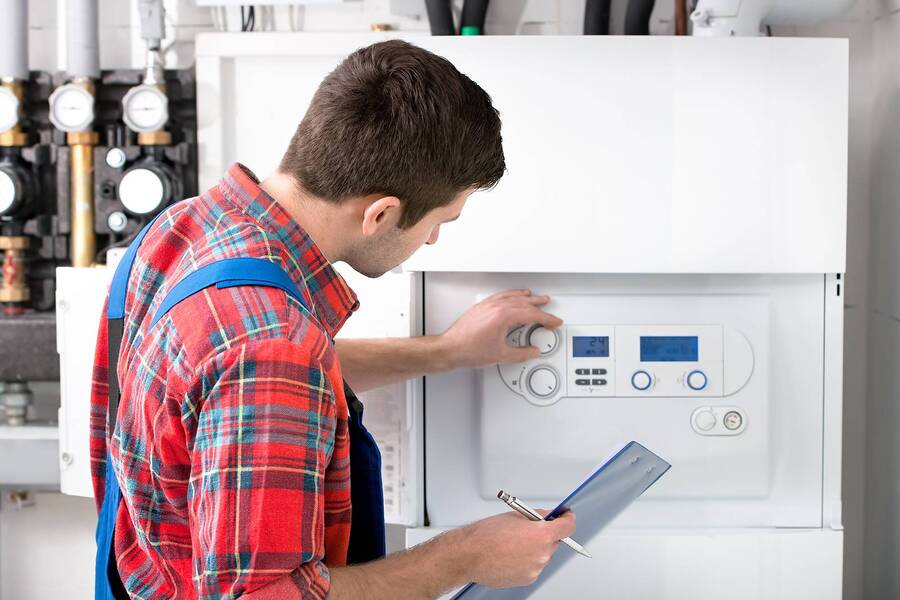Water heaters play a pivotal role in our daily lives, providing hot water for everything from handwashing and dishwashing to showering and laundry. They are not forever though. Whether you're replacing an old unit or installing a new one, there are several considerations in order to ensure optimal performance, efficiency, and longevity. In this article brought to you by Proline Rooter, we explore seven crucial factors that homeowners should take into account before embarking on a water heater installation project.
The first decision to make is the type of water heater that best suits your needs and preferences.

Conventional tank water heaters store hot water in a large tank and are suitable for households with moderate hot water demands. On the other hand, tankless water heaters heat water on demand, providing continuous hot water and saving space. Understanding the pros and cons of each type will help you make an informed decision based on your household's hot water usage patterns and budgetary considerations.
The fuel source for your water heater can significantly impact its operating costs and efficiency. Common options include natural gas, electricity, propane, and solar power. Natural gas water heaters are popular for their affordability and fast heating capabilities while electric water heaters offer flexibility in installation locations and are suitable for areas without access to natural gas.
Propane water heaters are ideal for off-grid properties, and solar water heaters harness renewable energy from the sun, reducing reliance on traditional fuels. Consider factors such as availability, cost, and environmental impact when choosing the fuel source for your water heater.
Choosing the right size and capacity of the water heater is fundamental if you want to efficiently meet your household's hot water demands. A water heater that is too small may struggle to provide an adequate supply of hot water, leading to inconvenience and discomfort. On the other, an oversized water heater can result in unnecessary energy consumption and higher utility bills.
Factors such as the number of occupants, peak hot water usage times, and simultaneous appliance usage are essential when determining the appropriate size and capacity of the water heater.
Opting for an energy-efficient water heater can help reduce energy consumption, lower utility bills, and minimize environmental impact. Look for water heaters with high energy efficiency ratings, such as ENERGY STAR® certified models which meet strict energy efficiency guidelines set by the Environmental Protection Agency (EPA).
Features like improved insulation, heat pump technology, and programmable settings can enhance energy efficiency and overall performance. Investing in an energy-efficient water heater upfront can yield long-term savings and contribute to a more sustainable home environment.
Consider the installation location and space requirements when planning for a new water heater. Tank water heaters require adequate space for installation and ventilation, typically in a utility closet, garage, or basement.
Tankless water heaters, on the other hand, are compact and can be installed on walls or in tight spaces. Ensure that the chosen location complies with local building codes and regulations and allows for easy access for maintenance and repairs.
Factor in the installation cost and whether professional assistance is needed for the water heater installation process. While DIY installation may seem tempting to save costs, hiring a licensed plumber ensures proper installation, compliance with safety standards, and warranty protection.
Proline Rooter is proud to offer price estimates upfront, and we regularly share special discounts and coupons on our website. Explore to take advantage of ongoing opportunities.
Finally, consider the maintenance requirements and long-term considerations associated with the chosen water heater. Regular maintenance, such as flushing the tank, inspecting components, and checking for leaks, is essential to prolong the lifespan and efficiency of the water heater.
Additionally, inquire about warranty coverage, service contracts, and manufacturer support to address potential issues and ensure hassle-free operation. Understanding the maintenance needs and long-term considerations of your water heater will help you make informed decisions and maximize its performance and durability.
If you’d like to consult with an experienced plumber, then call Proline Rooter. We are proud to offer a wide range of plumbing repair service, including all types of water heater services. Our team is on standby to take your call today.
When it comes to plumbing, the jargon can often sound like a different language. One term you might encounter…
Water is the essence of life, and having clean, safe drinking water is something many of us take for…
Read More Jul 11,2024Garbage disposals are a staple in more than half of U.S. kitchens, diligently working to keep our drains free…
Read More Jul 08,2024If you have a gas-powered water heater working to provide you with hot showers and warm baths, then…
Read More Jun 27,2024